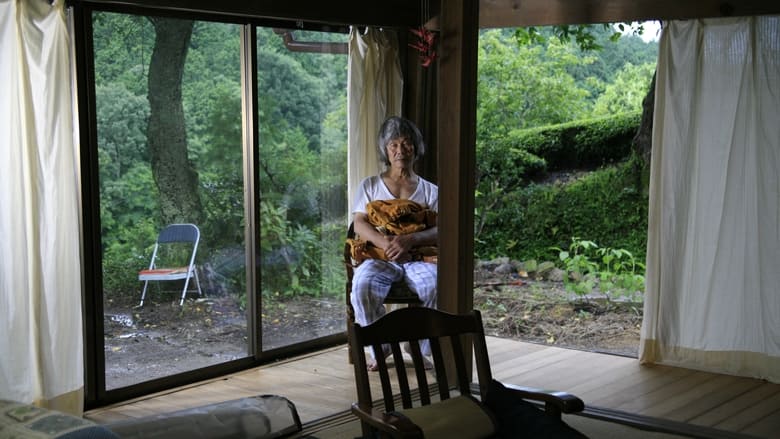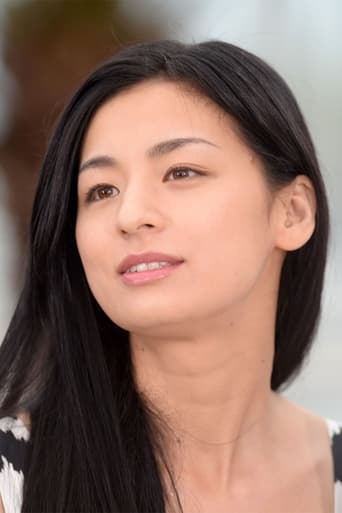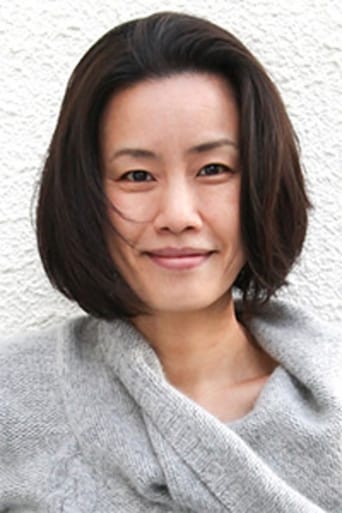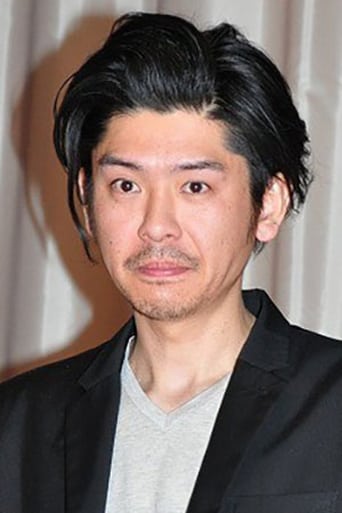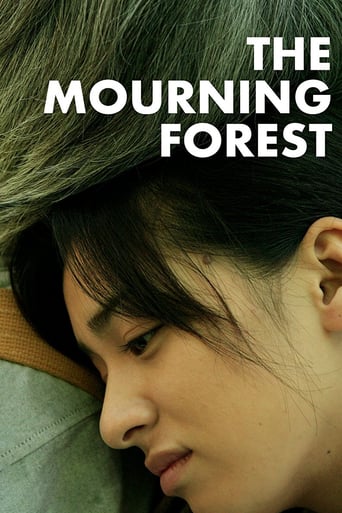
A young woman working at a retirement home takes an elderly man living there on an excursion into the countryside, but the two wind up stranded in the titular forest.
Similar titles
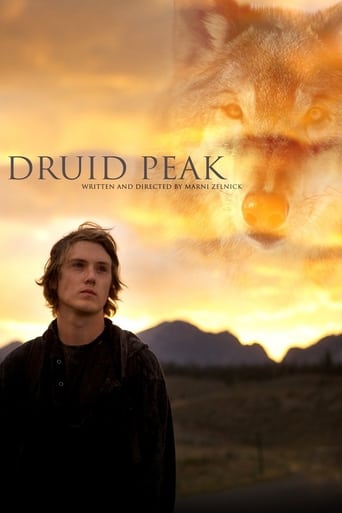
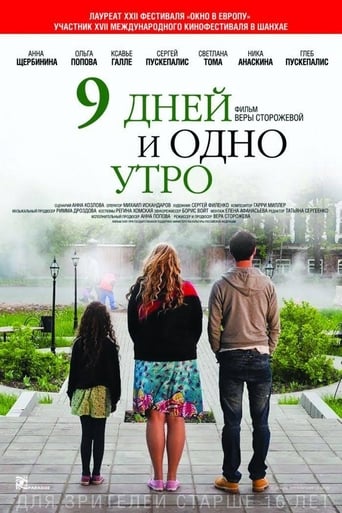
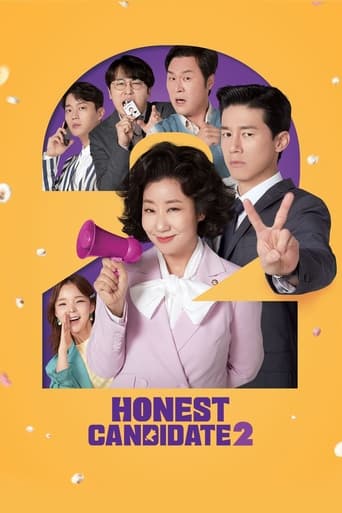





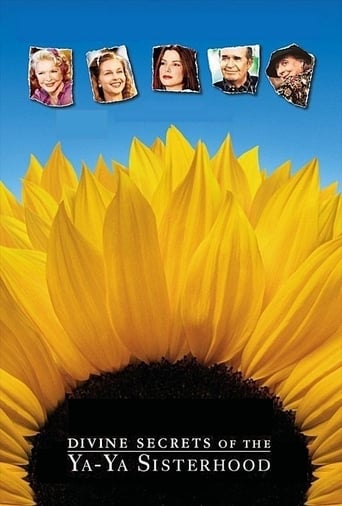
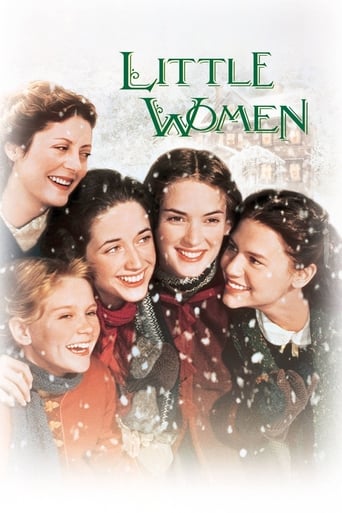
Reviews
Excellent adaptation.
Although I seem to have had higher expectations than I thought, the movie is super entertaining.
Watching it is like watching the spectacle of a class clown at their best: you laugh at their jokes, instigate their defiance, and "ooooh" when they get in trouble.
The movie really just wants to entertain people.
Machiko is a caregiver at a nursing home, Shigeki is one of the residents. Machiko is grieving the (apparently recent, though it's unclear) death of her young son, while Shigeki still mourns the loss of his wife, 33 years earlier. Their relationship to each other and to their grief during an excursion when they get lost in the woods. Their bond is complicated by Shigeki's dementia, whose often childlike behavior surely resonates with Machiko. It's an interesting, contemplative and spiritual exploration of grief with some lovely moments. Without spoiling anything, a charming early scene of Shigeki at the piano takes on a heartbreaking twist. Later, as Machiko desperately tries to control his reckless quest through the forest, we get hints of how she lost her child and the unresolved feelings she has.Although there are gorgeous scenes (the two playing amidst rows of geometrically carved hedges, for example) the hand-held cinematography isn't doing the film any favors. It may have been more appropriate in the latter half, as their journey takes them deeper into the wild. But the shaky camera-work throughout the entire movie adds nothing. Maybe it just comes naturally to Naomi Kawase, whose work is primarily in documentaries (although she's no stranger to drama).I don't know if this is an accurate representation of a Japanese senior facility, or an idealized one. I know that respect for elders is more ingrained in their culture. The home certainly appears to be a great deal more comfortable, dignified and serene than what we have. Perhaps it's a very expensive one, though we get no hints that Shigeki is particularly wealthy.I thought it could have explored its themes a bit deeper, and there are the aforementioned camera issues, but overall I liked the film a great deal. It ends on a strikingly beautiful note. I'd like to see more by Kawase.
This movie is so depressing most of the way and I fell from the grace of its reincarnation theme at the end. I was so alone when the casts are crying and yelling. The screenplay and the direction may lack some fatal information in this movie, but I had to 'understand' this because it won the Grrrrrrrand Prix at the Cannes.Erratic is the word. I had no idea why suddenly Machiko somehow eagerly chased to catch Shigeki after he fell down from the tree. Was it because Shigeki's mischievous action ignited Machiko's frustrated sadness (her son's death) and Machiko agreed to burst it out with him? In my eyes she hadn't been such frustrated or, saying more accurately, she looked good at hiding her own secret emotion. If I should understand and recognize her action only by watching that poor explanation, well that must be something like "sympathy without a cause", which I hate most.The latter half of the movie is filled with Machiko's sobbing call "Shigekisan, Shigekisan". It might imply her hidden cry to call her late son or her husband, but to me that sounded too self-indulging. The people on this movie might have extremely sad experience which an ordinary man like me can't even guess. Actually the movie has some snobbish impression due to its lack of explanation. Perhaps Machiko had divorced after her son's death and working for her own. OK, it must be hard. But how hard? It's too bold if the director wants me to sympathize with her sadness, again, only by that little information.Remember, the former half of most Kurosawa movies are boring as hell. Even for this Japanese man, his b&w "classics" are way too aged and often boring. But that boring pile of information gives the roles their lives. They become even more real than real people when the latter half starts. That's where all the story begins. We need that to get along with the director's "lies".It's not even the Eastern Zen style this movie wears. I know some Japanese movies have fine essence of that kind (eg. Ozu's), but this one only lacks what is needed to be there. It's not even poetic. In poets, the lines themselves conveys powerful meanings as well as the spaces between the lines. If the director said the motivation to make this movie was her grandmother's senility then she should know not all grandmother is senile or not every son & daughter realizes its possibility clearly. She may want people to realize that but she did little thing to make that happen.Some nice people acclaim for its cinematography. The scenes might be clean or green but you know what I'd say. Instead, I'd like to comment on its sound mixing. At first I thought it was at the director's will when I couldn't hear the main casts' voices clearly and the sound of people or the nature surrounding the main casts were too loud. But it wasn't fixed until the end. I was too tired to see the next round (the same director's "Sharasouju" for which I waited more hopefully) when the movie was over. Or was it the cinema theater's fault?I've been saying sh*t on this movie, but there is one big suspension. How do women think about this female director's movie? According to the rating breakdown on IMDb, obviously women appreciate this movie. I can't help imagining there is some kind of emotional code in this movie, of which only women can share without any further explanation. My comment can be nothing short of the same old "men's lack of understanding". But still.
There are directors who write their own original stories/scripts and directors who bring to the screen works of novelists, playwrights, and even biographers and historians. The directors who develop their own scripts are not just good filmmakers but arguably potential novelists or playwrights.One such formidable director is Japan's Naomi Kawase. Her films win awards at prestigious film festivals following which the director churns out well received novels in Japanese based on her original film-scripts. Today, like Kawase, there are exciting filmmakers such as Mexico's Carlos Reygadas and Spain's Alejandro Amenabar (The others) and Pedro Almodovar (Talk to her) who need to be appreciated as a breed apart from the regular directors who prefer to ride on the shoulders of other worthies.Kawase's Mourning Forest, won the Grand Prize at the 2007 Cannes film festival. Many Western critics missed out on the loaded Asian/Japanese cultural subtexts in this remarkable film and even expressed surprise that it won the honor. After viewing the film at the recent 12th International Film Festival of Kerala, I applaud the Cannes jury's verdict.Mourning Forest (Mogari no mori) is a film that centers around a 70-year-old man with senile dementia (Alzheimer's disease?) living in an old age home in Japansomewhat similar to Sarah Polley's Canadian film Away from Home. However, the two films approach the problem from totally different perspectivesunderlining the cultural divide between Western and Eastern sensibilities. In both films, young people admire the values of the older generation. Both films are indirectly family filmsunderlining undying love for spouses. That's where the similarities end.Mourning Forest is a sensitive film tracing a senile old man's quixotic pilgrimage to his wife's grave in a forest interlocking a mystical relationship with nature. An old man with depleting memory is cared for by a young woman Machiko, a new nursing recruit, at the retirement/old age home. But her name, which has similar syllables to the name of his wife Mako, who died 33 years before, triggers a passion in him to visit her grave in a forest.On the 33rd anniversary, according to Japanese Buddhist beliefs, the departed must travel to the land of Buddhasomewhat like the Roman Catholic Christian belief of the dead reaching heaven /hell after a stay in purgatory. The time has come for the couple to part forever unless he bids farewell soon before the anniversary.Mourning Forest can be divided into two parts.The first part introduces the viewer to the two main characters--the nurse and the nursed. Both have suffered personal loss and are grievingthe nurse has lost a child for which her husband holds her responsible; the nursed has lost his wife and evidently never remarried and keeps writing letters to his dead wife that must be "delivered." The nurse dominates the first part. We view the two figures chasing each other between rows of tea bushes, their heads clearly visible over the verdant green landscape. There is warmth of the sun. There is an allusion to life.The second part inverses the situation. The nursed dominates the nurse. The nursed tricks the smart young woman as he trudges to his wife's grave. Whether the spot is really her grave or not is of little consequencethe act of undertaking the pilgrimage is of consequence as he has to deliver his letters to his wife before 33 years of her death are completed. The forest covers the human figures. There is cold, darkness and mystical overflowing streams that threaten hypothermia. There are definite allusions to death and regeneration. In an interview to a news agency, Kawase said "After the two enter the forest, the forest becomes the force that supports them. It watches over the two of them, sometimes gently, sometimes more strictly." The films title roughly translates to "Forest of Mogari" and at the end of the film the director states the meaning of the term "mogari." Mogari means "the time or act of mourning." Unlike "Away from Her", "Mourning forest" is a film on understanding the richer complexities of life and death. "Running water never returns to its source," says the old man Shigeki to his nurse, words of solace for a young woman to look afresh at her marriage after losing a child. "If sad things happen, you shouldn't be sad about them or fight them, but vow to make the world a better place for children still to be born. That's my message," Kawase told the Reuters news agency At the Cannes festival, director Kawase said she made Mourning Forest because "her grandmother was becoming slightly senile, and today such people are looked down upon somewhat, and pitied, forgetting that it could happen to us someday." Kawase said she hoped viewers would learn kindness and a new way of handling difficulties -- which she said could help people around the world overcome religious and cultural differences. The nurse strips off her clothes to provide warmth to her ward and protect him from hypothermiaan action that would seem unusual to Western sensibilities. There is no sex here; mere practical help in time of need. There are streams that suddenly flood as if they have a life of their own and emerge as a silent character in the film.There is one Japanese film that is somewhat similar in spirit and contentthe 1983 Cannes Golden Palm winner Shohei Imamura's "Ballad of Narayama", where an active and useful old woman is forced to make a last trip up a mountain to fulfill local traditions and her consequent interactions with younger generations in the village. While Imamura used a famous novel to build a film classic, young Kawase has made a rich film using her own story. Kawase is treading in the footsteps of directors Terrence Mallick, Reygadas and Tarkovsky when the forest itself is transformed into a metaphor of memories and traditions, becoming a source of eternal strength. Kawase represents the finest in contemporary Japanese cinema blending nature and tradition in storytelling.
The attraction of indie to me is the feeling of "living" and quietness, the subtle human sentiments and emotions reeked from the ordinary stories in normal daily living. Mega-multi-million productions are stunning in many ways but they are too "drama", not living. We need indie as antidote.Since the 1990s, the world movie industry doesn't seem to produce many female directors and how happy we have Kawase, whose works mostly shot with Nara as backdrop. In the peaceful quietness, she is able to capture the meticulous subtlety of human touch and warmth.Young Machiko and old Shigeki are both bereaved with great sadness. One day they have an outing in the countryside and bad weather suddenly comes. Their journey is journey of healing as Shigeki is looking for the burial location of his wife Mako who passed away 33 years old. He wants to return to her as a means to cease his mourning. To me, the most touching episode is when they wade through the small brook which is suddenly flooded by rain water. The long-silent Shigeki, just like the abrupt influx rain-water, suddenly tells Machiko that the running water will not return to its source. It is a condolence and advice to this young woman whose baby has died: let bygones be bygones, people died, they died without any return. The speedy running brook and her fast running tears are important symbols of healing: they wash away her pain.The natural beauty of Nara is exhibited superbly with the actors' natural performance. By the way, it is the very first appearance of the 61-year-old amateur Shigeki Uda. Naomi Kawase just got to know him for very short time somewhere at her hometown while she was preparing for the shooting.
Top Streaming Movies











